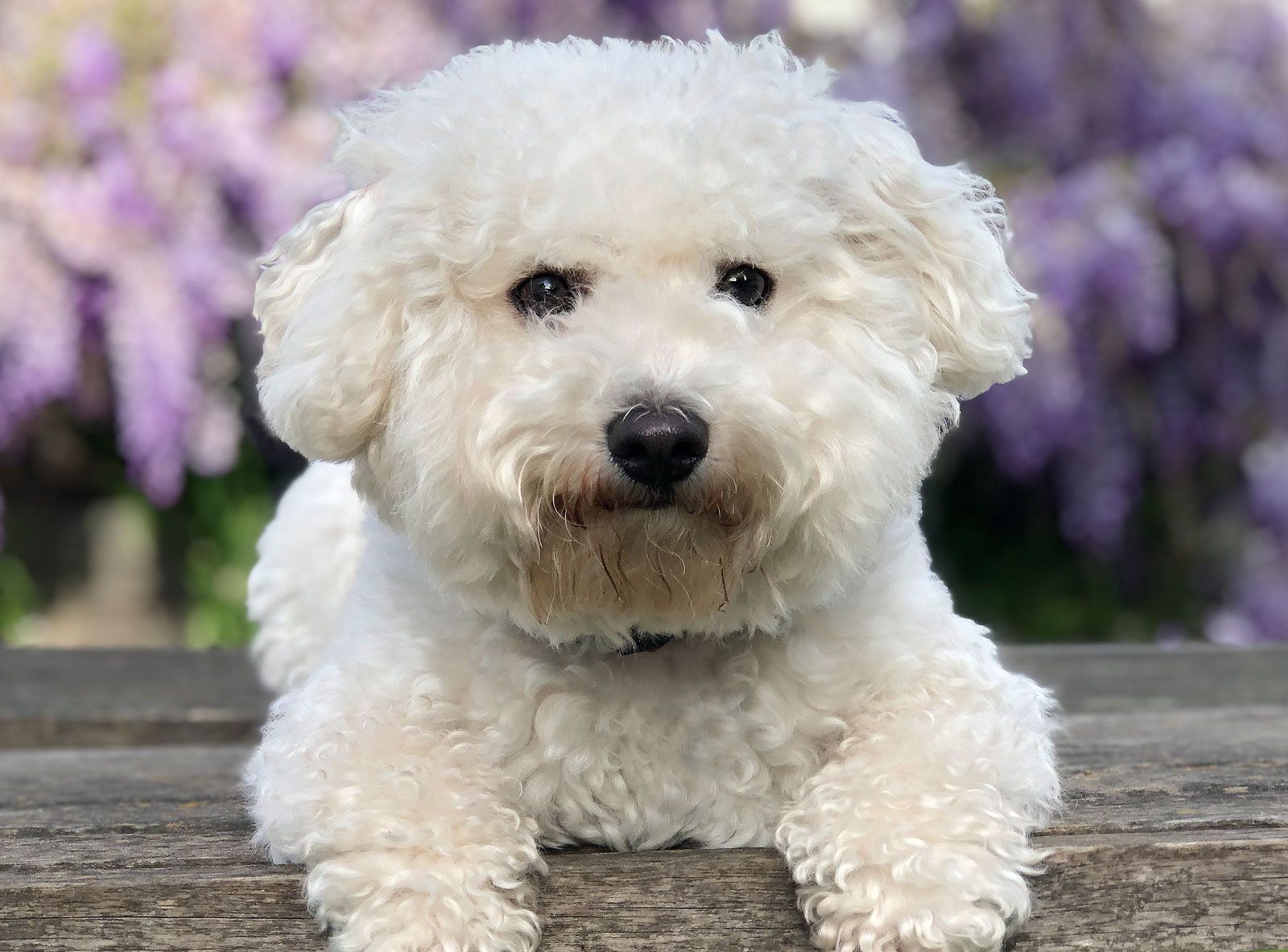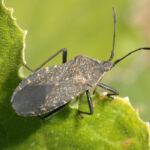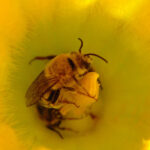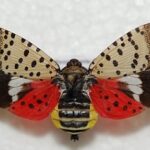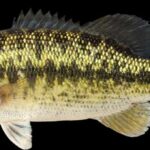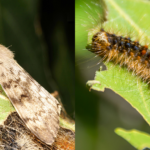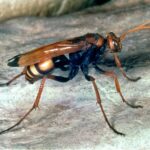Bichon Frise is an adorable small dog breed that has a fascinating history, interesting facts, specific size, unique habitat, and a special classification. This blog post will explore all of these aspects of the Bichon Frise, one of the many fascinating mammals in the animal kingdom.
Firstly, let’s delve into the history of the Bichon Frise. These lovable dogs originated in the Mediterranean region and were prized pets of European nobility. They became especially popular during the Renaissance period. With their fluffy, white coats and happy demeanor, Bichon Frises quickly won the hearts of many.
Moving on to some intriguing facts about the Bichon Frise, did you know that they are hypoallergenic? This means that they don’t shed much hair, making them a great choice for people with allergies. They are also known for their playful and affectionate nature, making them wonderful companions. In terms of size, Bichon Frises are small dogs, typically weighing between 10-18 pounds (4.5-8 kilograms).
When it comes to their habitat, Bichon Frises are adaptable and can live happily in various environments. However, they thrive in homes where they receive plenty of love, attention, and exercise. Finally, in terms of classification, Bichon Frises belong to the toy group of dog breeds. These are small breeds that are known for their small size and friendly personalities.
In this blog post, we have explored the history, facts, size, habitat, and classification of the delightful Bichon Frise. If you’re interested in learning more about fascinating mammal species like the Bichon Frise, be sure to check out our article on 155+ Animals Name, where you can discover even more amazing creatures that share our planet.
History of Bichon Frise
The Bichon Frise is a small, fluffy dog breed with a rich history. This adorable breed is believed to have originated in the Mediterranean area, specifically in Spain and later in Italy. The Bichon Frise was popular among sailors in olden times, as they would bring these dogs on their voyages. These sailors would gift these little dogs to locals wherever they docked, and that’s how the breed’s popularity spread across the globe.
During the Renaissance era, Bichon Frises were often seen in the courts of aristocrats. They were loved for their charming personalities and glamorous appearance. The breed gained even more recognition when they became a favorite of the French royal court in the 16th century. The French developed a particular affection for the breed and gave them the name “Bichon Frise,” which means “curly lap dog” in French.
In the early 20th century, Bichon Frises faced a decline in popularity due to changing trends. However, their charm couldn’t be forgotten, and a group of enthusiasts dedicated themselves to preserving the breed. They worked hard to promote the Bichon Frise, which eventually led to its revival. In 1933, the breed was officially recognized by the French Kennel Club, and it later gained recognition from other kennel clubs worldwide.
Today, Bichon Frises are cherished as family pets, known for their friendly and affectionate nature. They are highly sought after for their hypoallergenic coats and low-shedding traits. With their adorable fluffy appearance and lovable personalities, Bichon Frises continue to bring joy and companionship to people all around the world. They truly are a breed that stands the test of time.
Importance of Bichon Frise
Bichon Frise animals are important for many reasons. One reason is that they can bring joy and happiness to people. When someone sees a Bichon Frise, they often smile because these animals are cute and friendly. They can be great companions and provide comfort to their owners. This is especially important for people who may feel lonely or sad.
Another reason why Bichon Frise animals are important is because they can help improve our health. Studies have shown that owning a pet can reduce stress and anxiety. Bichon Frises are known to be a hypoallergenic breed, which means they are less likely to cause allergies in people. This is good news for those who love animals but have allergies. Bichon Frises can also encourage their owners to be more active by playing and going for walks together. This can help improve physical fitness and overall well-being.
Lastly, Bichon Frise animals are important because they are intelligent and trainable. This means they can learn new things and be good at following commands. They can be taught tricks and even some useful tasks. Their intelligence also makes them a great choice as therapy dogs, which can help people overcome their fears and gain confidence.
In conclusion, Bichon Frise animals bring joy and happiness to people, can improve our health, and are intelligent and trainable. They are indeed important creatures that have a positive impact on our lives.
Amazing Facts About Bichon Frise
1. Bichon Frise is a small dog breed that originated in France.
2. They are known for their white, fluffy, and curly coats that don’t shed much.
3. Bichon Frises are friendly and sociable dogs, making them great companions for families.
4. These dogs are intelligent and eager to please, which makes them easy to train.
5. Bichon Frises are generally good with children and can live harmoniously with other pets.
6. They have a cheerful and affectionate nature, always ready to cuddle and be around their owners.
7. Regular grooming is essential for Bichon Frises, as their coats require frequent brushing and occasional professional trimming.
8. Despite their small size, Bichon Frises have a sturdy build and enjoy playing and exercising daily.
9. These dogs have a lifespan of about 12 to 15 years.
10. Bichon Frises are generally healthy, but they may be prone to certain health issues such as allergies, dental problems, and eye conditions.
11. They have a high energy level and require daily walks and playtime to keep them physically and mentally stimulated.
12. Bichon Frises can adapt well in both apartments and houses, as long as they get enough exercise and attention.
13. These dogs have a reputation for being hypoallergenic, which means they are less likely to cause allergies in people who are allergic to pet dander.
14. Bichon Frises have a friendly nature and usually get along well with strangers, but they can also be good watch dogs, alerting their owners to any unusual activity.
15. Due to their charming looks and personality, Bichon Frises are often popular participants in dog shows and competitions.
Can we keep Bichon Frise as our Pet?
The Bichon Frise is a small and adorable animal that is often kept as a pet by many people. This furry friend has a fluffy white coat and a cheerful personality. They are known for their friendly nature and love to spend time with their human companions. Bichon Frises are great pets for families as they are gentle, affectionate, and easy to care for. They are also intelligent and can be trained easily.
However, unfortunately, if the Bichon Frise becomes extinct, we will not be able to keep them as pets anymore. Extinction means that a particular species of animals no longer exists in the world. It usually happens due to various reasons like habitat loss, pollution, or hunting. If the Bichon Frise were to become extinct, it would be a great loss as they bring joy and happiness to many homes.
If an animal goes extinct, it means that there are no more of them left in the wild. It is important to prevent such a situation from happening by taking care of our environment and protecting the habitats of different species. By doing so, we can ensure that future generations will also have the opportunity to experience the joy of having a Bichon Frise or other wonderful animals as pets.
In conclusion, the Bichon Frise is a wonderful pet to have but it is vital to protect them from extinction. We should appreciate the diversity of life on our planet and work towards preserving it for the future. By doing our part in conservation efforts, we can create a world where animals like the Bichon Frise continue to bring happiness to our lives.
Size of Bichon Frise
The Bichon Frise is a small dog breed that is known for its cute and fluffy appearance. This lovable animal usually stands about 9 to 11 inches tall at the shoulder and weighs between 12 to 18 pounds. That’s about the size of a small backpack or a big watermelon!
Despite being small in size, the Bichon Frise is full of energy and is always ready to play and explore. Due to their tiny stature, they are a popular choice for people who live in apartments or have limited outdoor space. You can easily carry them around or take them for walks without too much effort.
Don’t let their small size fool you, though! These little creatures have a big personality and a whole lot of love to give. Bichon Frises are known for their friendly and affectionate nature. They adore being around their human companions and can get along well with kids and other pets.
So, if you’re looking for a small and loving furry friend, the Bichon Frise might just be the perfect fit for you. They are small enough to cuddle in your lap and make the perfect companion for both kids and adults. Remember, like any pet, they require proper care and attention. Make sure you have enough time and love to give before bringing one home.
Habitat of Bichon Frise
The habitat of the Bichon Frise animal is an important aspect of its well-being. These fluffy and small dogs prefer to live indoors, in a comfortable and loving home. They are not well-suited for outdoor life and are not meant to be left outside for long periods of time. As companion animals, they thrive in a cozy and safe environment.
Inside the house, Bichon Frise dogs enjoy having their own special area. This can be a comfortable dog bed or a designated corner where they can relax and sleep. They appreciate a warm spot with a soft blanket, as they like to be comfortable and cozy. It is important to provide them with toys and chew bones to keep them entertained and mentally stimulated.
Since Bichon Frise dogs have a long, white, and curly coat, it is important to maintain a clean living environment for them. Regular grooming and bathing are necessary to keep their fur looking beautiful and to prevent any skin issues. Their habitat should be kept tidy and free of dirt and debris, as these dogs are prone to allergies. Daily exercise, such as short walks or playful indoor activities, is also important to keep them happy and healthy.
In conclusion, Bichon Frise dogs prefer to live indoors as beloved companions. They enjoy a safe and warm habitat with their own designated space. Regular grooming, toys, and daily exercise are essential to their well-being.
Evolution of Bichon Frise
The evolution of the Bichon Frise animal is an interesting story! These furry friends belong to the toy dog group and have a rich history. Long ago, their ancestors were originally bred in the Mediterranean region, where they were adored by sailors and traders. It is thought that they descended from the Barbichon breed. Over time, these little dogs made their way to different parts of the world, including Spain, Italy, and France.
In the 13th century, the Bichon Frise became a favorite of French royals. They were especially loved by King Henry III and his court. These royal connections helped boost their popularity further. As time went on, the breed started to evolve in appearance. Their beautiful white coats became their trademark, and they began to take on a distinctive, fluffy appearance.
In the 20th century, the Bichon Frise nearly went extinct during World War I. However, dedicated breeders managed to save them from disappearing forever. They have since gained recognition and popularity all around the world. Today, Bichon Frises are known for their friendly and cheerful nature, making them beloved pets in many households. It’s fascinating to see how these adorable dogs have evolved and adapted over the centuries, from their humble beginnings to becoming cherished companions for many families across the globe.
Classification of Bichon Frise
The Bichon Frise is a small and fluffy dog that belongs to the toy group of dog breeds. It has a distinctive appearance with a round head, black round eyes, and a curly white coat that gives it a puffy look. This breed is known for its friendly and gentle nature, making it a popular choice as a companion pet.
In terms of classification, the Bichon Frise belongs to the Animalia kingdom, which includes all animals. It falls under the Phylum Chordata, which consists of animals with a notochord or a spinal cord. The Bichon Frise further belongs to the Class Mammalia, which includes all mammals that have mammary glands and give birth to live young ones.
Moving on to the Order and Family, the Bichon Frise is classified under the Order Carnivora, which includes meat-eating mammals. However, it is important to note that the Bichon Frise is not a true carnivore, as its diet mainly consists of dog food and not actual meat. Within the Carnivora order, the Bichon Frise belongs to the Family Canidae, which includes domestic dogs, wolves, and foxes.
In summary, the Bichon Frise is classified as an animal belonging to the kingdom Animalia. It falls under the Phylum Chordata, the Class Mammalia, and the Order Carnivora. Furthermore, within the Carnivora order, it belongs to the Family Canidae. Understanding the classification of animals helps us better comprehend the different species and their place in the animal kingdom.
Different Types of Bichon Frise
1. Bichon Frise: The Bichon Frise is a small and fluffy breed of dog. They are known for their white, curly coats and friendly personalities. They make great companions and are easy to train due to their intelligence and eagerness to please.
2. Bichon Frise Mix: Bichon Frise mixes are a popular type of dog that result from crossbreeding a Bichon Frise with another breed. These mixes often inherit the Bichon Frise’s friendly nature and hypoallergenic coat, making them great for families with allergies.
3. Bichon Frise Puppies: Bichon Frise puppies are incredibly cute and sought after. They are known for their playful nature and love for attention. However, they require plenty of socialization and training to grow into well-behaved adult dogs.
4. Bichon Frise Rescue: Bichon Frise rescue organizations help find homes for Bichon Frises in need. These dogs may have been abandoned or surrendered by their previous owners. By adopting a rescued Bichon Frise, you can provide a loving home and save a life.
5. Bichon Frise Show Dogs: Bichon Frise show dogs are bred and trained to compete in dog shows. These dogs have impeccable grooming, conform to breed standards, and showcase the best qualities of the Bichon Frise breed. Show dogs require a dedicated owner and regular grooming sessions to maintain their appearance.
6. Bichon Frise Service Dogs: Bichon Frise service dogs are trained to assist individuals with disabilities or special needs. Due to their intelligence and friendly nature, they excel in tasks such as therapy work, emotional support, and alerting to medical conditions.
7. Bichon Frise Therapy Dogs: Therapy dogs provide comfort, support, and companionship to people in hospitals, nursing homes, or rehabilitation centers. Bichon Frise therapy dogs have a calm temperament and enjoy being around people. Their fluffy coats and friendly personalities can instantly brighten someone’s day.
8. Bichon Frise Agility Dogs: Bichon Frises have a surprising agility and enjoy participating in dog sports such as agility competitions. These dogs excel at navigating obstacle courses, showcasing their speed, agility, and obedience. Agility training helps them stay active and stimulates their intelligent minds.
9. Bichon Frise Breeding Dogs: Responsible Bichon Frise breeders ensure the preservation and improvement of the breed. Breeding dogs undergo health testing to produce quality puppies that meet breed standards. These breeders care deeply about the welfare of the Bichon Frise breed and its future.
10. Bichon Frise Senior Dogs: Bichon Frise senior dogs refer to older dogs that have reached their golden years. These dogs may require special care and attention, including regular veterinary check-ups, a balanced diet, and a comfortable living environment. Adopting a senior Bichon Frise can bring joy and companionship to your home.
Geographical Presence of Bichon Frise
The Bichon Frise is a small breed of dog that is found in various regions around the world. These adorable dogs are believed to have originated in the Mediterranean region, particularly in countries like Spain, Italy, and France. This is why they are often referred to as Mediterranean dogs. In these regions, Bichon Frises were cherished as companions and lapdogs, known for their friendly and playful nature. They were often seen accompanying noble families and were pampered as beloved pets.
However, Bichon Frises are not limited to just the Mediterranean region. Throughout history, they have gained popularity and have been bred in various other countries as well. Nowadays, they can be found in many parts of the world, including North America, Europe, Asia, and Australia. Their adorable appearance and cheerful personality have made them a popular choice among dog lovers worldwide.
Despite their widespread presence, there may be some places where Bichon Frises are less commonly found. These could include regions that are not well connected to the rest of the world or areas where certain dog breeds are not as popular. However, due to the Bichon Frise’s overall popularity, they can still be found in many places around the globe, bringing joy and happiness to their owners wherever they go.
Scientific Name of Bichon Frise
The scientific name for the Bichon Frise is Canis lupus familiaris. The Bichon Frise is a small dog breed that is known for its fluffy white coat and playful personality. They are often considered to be a type of companion or lap dog.
The scientific name, Canis lupus familiaris, helps to categorize the Bichon Frise as a subspecies of the gray wolf or the common dog. Although they have been domesticated for many years, dogs are still considered part of the same species as wolves. This means that Bichon Frises and other dogs share many genetic similarities with wolves, even though their appearances and behaviors may be very different.
The Bichon Frise is a popular pet because they are generally friendly, social, and adaptable. They enjoy being around people and can get along well with children and other animals when properly trained and socialized. These dogs are often known for their cheerful nature and their love of playtime, making them a great choice for families or individuals looking for a lively and affectionate companion.
Diet of Bichon Frise
The Bichon Frise animal has a specific diet that helps keep them healthy and energized. Their diet should consist of high-quality dog food that is specially formulated for small breeds like them. This food usually contains a balanced mix of protein, carbohydrates, fats, vitamins, and minerals. It is important to avoid giving them human food as it can be harmful to their health.
Protein is an essential nutrient for the Bichon Frise. It helps in the growth and repair of their muscles, skin, and coat. Good sources of protein for them include chicken, turkey, fish, and eggs. Carbohydrates, found in grains like rice and wheat, provide them with energy. However, it’s crucial to ensure that the carbohydrates in their diet are not excessive, as Bichon Frises are prone to weight gain.
Fats are also important for the Bichon Frise’s diet, as they help in the absorption of certain vitamins and provide a source of energy. However, it’s crucial to choose healthy fats like fish oil or flaxseed oil rather than unhealthy ones like saturated fats. Bichon Frises also need vitamins and minerals to support their overall health. Some important ones include vitamin A for good eyesight, vitamin C for a healthy immune system, calcium for strong bones, and iron for proper blood circulation.
In conclusion, the Bichon Frise animal requires a balanced diet to stay healthy and active. Their diet should consist of high-quality dog food that contains a good mix of protein, carbohydrates, fats, vitamins, and minerals. It is important to avoid feeding them human food and to consult a veterinarian for guidance on specific dietary needs. By providing them with the right nutrition, we can help ensure that Bichon Frises lead happy and healthy lives.
Locomotion of Bichon Frise
The Bichon Frise is a small dog with a unique way of moving around. When it walks, it moves its front legs and back legs in a coordinated manner, making its body move forward. Its front legs step forward first, then its back legs follow after. This helps it maintain balance and stability as it moves.
When the Bichon Frise runs, it uses all four legs to propel itself forward. It can run at a fast speed, especially considering its small size. Its legs move in a quick and smooth motion, allowing it to quickly cover ground. This makes it a fun and playful companion to have around. Overall, the Bichon Frise has a joyful and sprightly way of getting around!
Social and Sexual Behaviour of Bichon Frise
Bichon Frise animals have social and sexual behaviors that are important for them to communicate and mate with each other. These behaviors help them to interact and form relationships with other dogs of the same breed.
In terms of social behavior, Bichon Frise animals are known for being friendly and sociable with humans and other animals. They enjoy being a part of a family or a group, and they like to be around people. They are also known for being affectionate and loving, which makes them great companions.
In terms of sexual behavior, Bichon Frise animals have specific behaviors when it comes to mating. Male Bichon Frise dogs may become more interested in female dogs when they are in heat, and they may try to mate with them. Female Bichon Frise dogs, on the other hand, may become more receptive to mating during this time. Mating is a natural behavior for animals and is important for continuing their species.
Overall, Bichon Frise animals have social behaviors that help them connect with others, and they also have specific sexual behaviors for mating. These behaviors are a part of their natural instincts and are essential for their survival and well-being.
Reproduction and Lifecycle of Bichon Frise
The reproduction and life cycle of Bichon Frise animals is an interesting and important process. These fluffy creatures have a unique way of bringing new life into the world.
The first stage of their life cycle is the mating process. Male Bichon Frise animals have special parts called “testicles” and the females have something called a “vagina.” When a male and female come together, the male’s testicles produce special cells called “sperm” that travel into the female’s vagina. If one of the sperm successfully meets the female’s egg, it can fertilize it. This is called “conception” and it is the beginning of a new Bichon Frise’s life.
After conception, the female’s body starts to change. She carries the developing puppies in her belly for about 9 weeks. This is called “gestation” and it is a very important time for the mother. When it is time for the puppies to be born, the mother gives birth to a litter of tiny puppies. The puppies are very dependent on their mother during this time, as they cannot see or hear. They rely on her for warmth and food. As they grow, their eyes and ears start to develop, and they begin exploring the world around them.
As the puppies continue to grow, they enter the next stage of their life cycle. This is called “adulthood.” They become more independent and learn important skills like playing, eating solid food, and potty training. When they reach adulthood, they can start their own families and continue the beautiful cycle of life.
In conclusion, the reproduction and life cycle of Bichon Frise animals is a fascinating process. From the initial mating to the birth of adorable puppies and their growth into adulthood, it showcases the miracle of life.
Threats to Bichon Frise
Bichon Frise animals face several threats that can harm them and make them vulnerable. One major threat to these fluffy creatures is neglect and abandonment. Some people might not realize the responsibilities that come with owning a pet and may give up on their Bichon Frise, leaving them lonely and confused. This can lead to neglect and result in the dog feeling sad and unloved.
Another threat to Bichon Frise animals is improper breeding practices. Irresponsible breeders may not follow proper procedures, such as health screenings, genetic testing, and socialization. This increases the risk of puppies being born with health issues or having behavioral problems. These poor breeding practices can negatively impact the wellbeing of Bichon Frises and may result in costly veterinary bills for their owners.
Furthermore, Bichon Frises are prone to certain health conditions, such as allergies, dental problems, and knee issues. These health problems can cause discomfort and pain for the dogs if not properly treated. Regular visits to the veterinarian and a balanced diet can help prevent or manage these health issues. Owners must also ensure that their Bichon Frises get enough exercise to keep their bodies healthy and strong.
To protect Bichon Frise animals, it is important for people to educate themselves and others about responsible pet ownership. This includes understanding the commitment that comes with owning a dog and providing the necessary care and attention. Supporting reputable breeders and adopting from shelters or rescue organizations is also crucial to combat improper breeding practices. By taking these actions, we can help ensure a happy and healthy life for Bichon Frises and reduce the threats they face.
Population of Bichon Frise
The population of Bichon Frise animals is estimated to be around 250,000 worldwide. These fluffy white dogs are known for their friendly nature and playful personality. They are a popular choice for families and individuals looking for a companion pet.
Unfortunately, if the Bichon Frise were to become extinct, it would mean that there are no more of these adorable dogs left anywhere in the world. Extinction occurs when a species disappears completely, usually due to factors like habitat loss, climate change, or human activities. The loss of any animal species, including the Bichon Frise, would be a sad event for the world.
It is important to protect and care for the Bichon Frise and other animal species to ensure they do not face extinction. Preserving their natural habitats, reducing pollution, and adopting responsible pet ownership practices can help in maintaining a diverse and balanced ecosystem for these wonderful animals to thrive. Let’s work together to ensure the Bichon Frise and other species continue to bring joy and companionship to our lives.
Conclusion
In summary, the Bichon Frise is a small and fluffy breed of dog that has a rich history. They were originally bred as companion animals, and their friendly and sociable nature makes them great pets for families. Despite their small size, Bichon Frises are energetic and playful, always ready for a game or a walk.
Bichons have been around for centuries, with their origins traced back to the Mediterranean. They were treasured by royalty and even made appearances in famous artworks. This breed is known for its white, curly coat and dark, expressive eyes. They are also hypoallergenic, which means they are less likely to cause allergies in people.
In terms of size, Bichon Frises are considered small dogs. They typically weigh between 10 to 18 pounds and stand at about 9 to 11 inches tall. Their compact size makes them well-suited for apartment living, as long as they get regular exercise and mental stimulation.
In conclusion, the Bichon Frise is a fascinating breed of dog with a long history and many endearing qualities. They are friendly, playful, and make wonderful companions. Whether you are looking for a small and low-shedding pet or simply want to learn more about different dog breeds, the Bichon Frise is definitely an animal worth knowing about.
Frequently Asked Questions about Bichon Frise (FAQ’s)
Q: What is a Bichon Frise?
A: A Bichon Frise is a small breed of dog known for its white curly coat.
Q: Are Bichon Frises hypoallergenic?
A: Yes, Bichon Frises are considered hypoallergenic dogs, making them a good choice for people with allergies.
Q: How big do Bichon Frises typically get?
A: Bichon Frises usually weigh between 10 and 18 pounds and stand about 9.5 to 11.5 inches tall at the shoulder.
Q: What is the life expectancy of a Bichon Frise?
A: On average, Bichon Frises live for around 12 to 15 years.
Q: Do Bichon Frises require a lot of grooming?
A: Yes, Bichon Frises have a high-maintenance coat that requires regular grooming to keep it clean and tangle-free.
Q: Are Bichon Frises good with children?
A: Bichon Frises are generally good with children, as they are friendly, playful, and gentle.
Q: Do Bichon Frises get along with other pets?
A: Bichon Frises can get along well with other pets if properly socialized from a young age.
Q: Are Bichon Frises easy to train?
A: Bichon Frises are intelligent and eager to please, making them fairly easy to train with positive reinforcement methods.
Q: Do Bichon Frises bark a lot?
A: Bichon Frises have a tendency to bark, especially when they are trying to communicate something or when they are bored or anxious.
Q: Are Bichon Frises good apartment dogs?
A: Yes, Bichon Frises can adapt well to apartment living as long as they receive enough exercise and mental stimulation.
Q: Do Bichon Frises have any common health issues?
A: Bichon Frises may be prone to certain health issues, such as allergies, dental problems, and patellar luxation.
Q: How often should I exercise my Bichon Frise?
A: Bichon Frises should be given daily exercise, such as walks or playtime, to keep them healthy and prevent behavioral issues.
Q: Are Bichon Frises good for first-time dog owners?
A: Yes, Bichon Frises can be a good choice for first-time dog owners due to their friendly nature and adaptability.
Q: Can Bichon Frises be left alone for long periods?
A: Bichon Frises are social dogs and may become anxious or develop behavioral problems if left alone for long periods. They prefer companionship.
Q: Are Bichon Frises prone to separation anxiety?
A: Yes, Bichon Frises can be prone to separation anxiety, so proper training and gradual introductions to being alone are important.

Hey there, I’m Tyler Swan! I worked as an Animal Care Specialist at Neuralink and completed my education at the University of California, Davis. Animals have always fascinated me, so I chose to study and work with them.
In my job, I take care of animals and make sure they’re healthy and happy. I’ve had cool roles like Lab Manager and Senior Research Assistant at Mitloehner Lab, where I’ve learned much about animals.
I’m not just about work, though. I love animals so much that I write articles about them! I enjoy sharing fun and interesting facts about our furry and feathered friends.
If you ever want to know more about animals or need help with animal info, ask! I’m here to make learning about animals easy and fun, just like chatting with friends.

